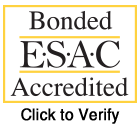Every business faces challenges with various rules, laws, regulations, and general business issues. This questionnaire aims to highlight the key areas of human resources activities that could pose risks to your business if not done or improperly managed. Ask yourself these questions or focus only on one or more of the sections that are of most concern to you to determine if your business is at risk:
General Company Questions
- Are you a federal or state government contractor?
- Do you know the employment laws and regulations impacting an organization of your size (by the number of employees)?
- Do you intend to either hire more people or shrink your workforce this year?
- Do you have unions subject to a collective-bargaining agreement?
- Do you have a regular system for monitoring and auditing your human resources practices to ensure compliance with applicable state and federal regulations?
- Have you had any employment practice claims in the last three years, including, but not limited to, NLRB, DOL, EEOC, FLSA, state agencies, mediations, arbitrations, administrative hearings, internal grievances, and attorney demands?
- Do you have employment practices liability insurance (EPLI) coverage?
- Is your management personnel trained in human resources practices and compliance with company policies and the law?

Hiring, Staffing, and Onboarding
- Do you have a recruitment process that includes defining the job prior to advertising openings and training hiring managers on the process?
- Are your job advertisements compliant with nondiscrimination, equal employment opportunity, and disability regulations?
- Do your job descriptions help you comply with the Americans with Disabilities Act (ADA) by setting forth essential job functions and duties?
- Do you use a structured interview checklist with legally-compliant interview questions?
- Do you have candidates complete an employment application? If so, is the application in compliance with federal, state, and local laws prohibiting employment discrimination and laws regarding background checks, employment and education verification, criminal records, driving records, credit checks, and job-related testing?
- Do you conduct background checks or drug testing before making an offer of employment?
- Are the tests and assessments you conduct job-related and validated based on actual job performance?
- Do you have a procedure to inform applicants of their acceptance or rejection?
- Do you use independent contractors/contingent workers? If so, do you have them sign a contract confirming that their independent business complies with all labor, immigration, and tax laws and that the business has liability insurance?
- Do you ensure that you are fully prepared for onboarding new employees by preparing paperwork, people, policies and procedures, performance expectations, getting the workstation ready, and assigning work?

Employee Relations and General Employment Policies
- Do you have an updated employee handbook compliant with federal and state rules for the areas where your company operates?
- Does your employee handbook contain provisions for employment at will and acknowledgment of handbook receipt?
- Do your job descriptions help you comply with the Americans with Disabilities Act (ADA) by setting forth essential job functions and duties?
- Do you have an arbitration or mediation agreement for resolving employee claims signed by employees and maintained separately from your employee handbook?
- Does your employee handbook contain language that states that the company will not tolerate any form of harassment, discrimination, or other illegal and unethical conduct?
- Does your employee handbook contain an Equal Employment Opportunity policy statement, and is that also included in your employment application and posted in prominent employee areas of your company?
- Do you have a company ethics policy that includes the process for reporting illegal or unethical activity?
- Do you have a standard employee process to communicate issues of concern (open door policy)?
- Do you have a documented process, designated investigators, and management training for investigating sexual harassment, discrimination, or other complaints?
- Does your employee handbook outline standards of conduct and progressive disciplinary measures?
- Do you have an established process and managers trained to ensure company standards are followed before disciplining or terminating an employee?
- Does your process include a second level of review before taking significant disciplinary action?
- In the case of employment terminations, do you have a process in place to manage compliance with final paycheck regulations, required notifications for termination reasons, unemployment and benefits continuation rights, or any other notification, collection of company equipment, and exit interview process?
Total Compensation (Wages and Benefits) and Hours Requirements
- Do you have clearly defined employee classifications including, but not limited to, full-time, part-time, temporary, short-term, exempt, nonexempt, regular employee, or independent contractor?
- Have you ensured that you are paying your exempt and nonexempt employees in compliance with federal, state, and local wage and hour laws?
- Do you have systems and communications in place to accurately track time worked, including meal and rest periods, as required under federal and state laws, for purposes of overtime and regulatory compliance?
- Do you have a process to approve time worked or make scheduled work time changes (such as requests for time off, make-up time requests, or schedule changes)?
- Do you have a written policy for absenteeism and punctuality?
- Do you have clearly defined paid time off policies (vacation, sick, holiday, other)?
- Does your sales compensation program clearly define when a commission is earned”; and what happens to uncollected commissions after an employee leaves the job?
- Do you comply with regulatory rules for the employment of minors (work permits, hours of work)?
- If you offer group health benefits programs to your employees, do you have Summary Plan Descriptions (SPDs) for the required plans?
- Are your benefit plans clearly communicated to eligible employees?
- Do your plans that are subject to IRS section 125 (Cafeteria Plans), or Employee Retirement Income Security Act (ERISA) meet the design, notification, nondiscrimination, and recordkeeping requirements of those plans?
- Do your benefit and wellness plans comply with the portability and privacy requirements of the Health Insurance Portability and Accountability Act (HIPAA)?
- Is your process and communications for participants eligible for health care continuation through the Consolidated Omnibus Budget Reconciliation Act (COBRA) defined?
- Are you working with your partner to ensure that your plans comply with the plan design, notification, and recordkeeping requirements under the Affordable Care Act?
- Do your retirement plans (pension, 401(k), 403(b)) comply with all ERISA requirements?
- Are all of your discretionary bonus and benefits plans defined and communicated?
- If you have a severance pay plan, does it comply with ERISA requirements?
- Does your severance pay plan require employees to sign a Release of Claims Agreement as a condition to receiving any severance package?
- Do you have policies to manage various leaves of absence, such as pregnancy disability, military leaves, or other types of special time off needs?
Recordkeeping and Compliance Requirements
- Do you know what types of personnel records to maintain in your files?
- Do you know how long to maintain your personnel records?
- Are your personnel files (cloud or paper) secure, with limited access to those on a need-to-know basis?
- Do you separate any of your personnel records?
- Do you know which postings you need to display in common areas for employees and if the posters need to be in another language besides English?
- Do you know what required notices you must provide to your employees and in what languages?
- Do you know what notifications you need to file with the appropriate regulatory authorities?
Health and Safety
- Have you complied with all OSHA and notification requirements related to your industry?
- Do you have an injury prevention program (IIP) that complies with the safety regulations in your company locations?
- Do you have a designated safety officer that manages periodic safety inspections/audits and corrections?
- Do you have a safety training program?
- Do you have an emergency response and communications plan?
- Do you have your process and communications for employees and managers to immediately report all occupational injuries to your human resources contact and/or workers’ compensation carrier?
- Do you maintain your annual OSHA log to record all employee work-related illnesses and injuries and comply with all OSHA recordkeeping and posting requirements?
- Do you have a hazardous substance communication and disclosure policy that is communicated within your organization?
- Do you have a process for managing the employee communications and administration of workers’; compensation leaves of absence, including your return-to-work protocols?
- Do you have a process for reviewing your losses and experience ratings with your worker’s compensation agent or carrier?
- Have you evaluated your workplace for safety issues, including proper ergonomics, office equipment, VDT exposure, or other potential repetitive motion issues?
- Do you have a policy, procedures, and communications plan for managing potential workplace violence issues?
- Do you have employee wellness programs that comply with all applicable healthcare and privacy regulations and are designed to improve health outcomes?

Contact us at sales@aspenhr.com to discuss your human resources activities and learn how we can help your business manage and mitigate these above risks.






